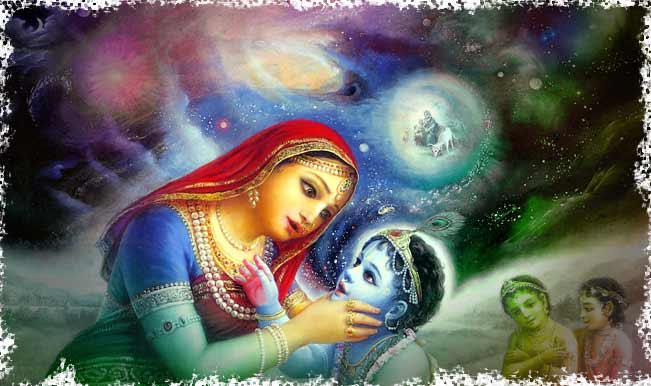SrI: SrImathE SatakOpAya nama: SrImathE rAmAnujAya nama: SrImath varavaramunayE nama:
 bhagavath rAmAnuja at AzhwArthirunagari, SrIperumbUthUr, SrIrangam and thirunArAyaNapuram
bhagavath rAmAnuja at AzhwArthirunagari, SrIperumbUthUr, SrIrangam and thirunArAyaNapuram
AUM
ŚRI BHAGAVAD-GĪTĀ
WITH
SRI RĀMĀNUJA’S VIŚISHTĀDVAITA COMMENTARY
THIRTEENTH LECTURE
NAMED,
KSHETRA-KSHETRAJNA-VIBHĀGA-YOGA
OR
THE BOOK OF MATTER-SPIRIT DISTINCTION.
PROEM
IN the First Division comprising the First Six Lectures (Psychocrasy), it was shown that there were two Paths, viz., Karma-Yoga and Jñāna-Yoga by which an aspirant can achieve actual soul-realization.
It was also shown that such soul-realization or soul- cognition is ancillary (or stepping-stone) to God-Love known as Bhakti, or the Means by which to reach the Supreme Goal, viz:, the Blessed Lord Vāsudeva, Who is Parabrahm.
Next, in the Middle Division, (comprising the Six Lectures, Seven to Twelve, or Theocrasy), the Path of Bhakti or Bhakti-Yoga was propounded, — Bhakti or God-Love, intense and one-pointed, preceded by a true knowledge of the Blessed Lord, and His glory-full Greatness, — the Lord, the aspirant’s Exalted End.
It was also shown (in the Middle Division) that Bhakti-Yoga constitutes the Means (also) by which those, ambitious of acquiring wealth (aiśvarya) and those aspiring for mere soul-enjoyment (kaivalya), can gain their respective desires.
And now in the present (and last) Division, comprising the Third Six Lectures (or Theo-Philosophy, XIII-XVIII.) the topics propounded in the First Two Divisions will be further examined, grouped under the heads of: matter and spirit (prakṛiti-purusha), their union constituting the manifested Kosmos, the nature of Iśvara (God), the nature of (the Paths, -or Means of Salvation) Karma (works), of Jñāna (knowledge), and of Bhakti (Love or Devotion), and how to acquire (and practise) these several Methods.
Of this Third Division, the Thirteenth Lecture undertakes to discuss the following points:
- The nature of body (matter) and soul;
- The examination into the nature of body (matter);
- The means by which to realize the soul (chit) in distinction from body (matter or achit);
- The examination into the nature of soul as discriminated from body (matter);
- The cause of such distinctive soul’s association with matter and,
- How the soul per se, may be meditated on.
- Verse 1
- Verse 2
- Verse 3
- Verse 4
- Verse 5
- Verse 6
- Verse 7
- Verse 8
- Verse 9
- Verse 10
- Verse 11
- Verse 12
- Verse 13
- Verse 14
- Verse 15
- Verse 16
- Verse 17
- Verse 18
- Verse 19
- Verse 20
- Verse 20.5
- Verse 21
- Verse 22
- Verse 23
- Verse 24
- Verse 25
- Verse 26
- Verse 27
- Verse 28
- Verse 29
- Verse 30
- Verse 31
- Verse 32
- Verse 33
- Verse 34
archived in http://githa.koyil.org
pramEyam (goal) – http://koyil.org
pramANam (scriptures) – http://granthams.koyil.org
pramAthA (preceptors) – http://acharyas.koyil.org
SrIvaishNava education/kids portal – http://pillai.koyil.org
